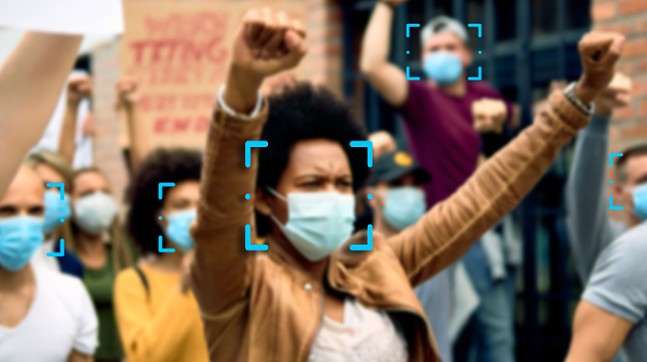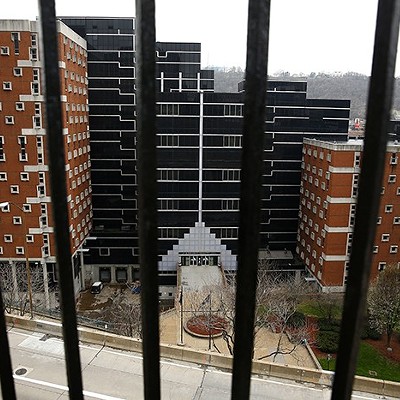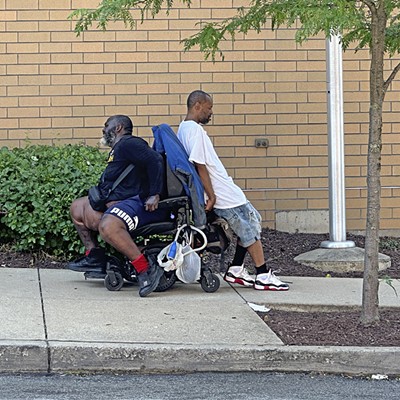Some Pittsburgh City Councilors have called out these events and signaled that council needs to take action in the realm of police reform. Today, Pittsburgh City Councilor Corey O’Connor (D-Squirrel Hill) is introducing legislation that he hopes will re-establish a level of accountability of the police within city government.
O’Connor’s bill would ban Pittsburgh’s Public Safety Department, which oversees the police, from using facial recognition software or Predictive Policing Technology, which the ordinance defines as “programs, devices, hardware, or software used to predict information or trends on crime or criminality that has or has yet to occur."
Pittsburgh Public Safety policy already bans the city from acquiring and using facial recognition software, though PublicSource reported that the department did recently use Jnet, the state’s facial recognition software, on at least one occasion. Also, in June, the city suspended its predictive policing program after concerns about racial bias.
Studies have shown that police use of facial recognition and predictive policing have disproportionately targeted people of color. O’Connor notes how other cities around the country have already banned the uses of these technologies, like Sommerville, Mass, San Francisco, and Oakland, Calif.
“We have seen how this hurts people of color and people in low-income areas,” says O’Connor of facial recognition and predictive policing technology. He also tweeted last week that more police-reform legislation is likely to come.
O’Connor, who chairs council’s Public Safety Committee, acknowledged that the city is not currently using these technologies, but said the point of the ordinance is to codify it into law, and to ensure that if police want to utilize these technologies in the future, they have to come to city council first and make their case.Council has changed some public safety practices, but the work is far from finished. I will introduce a bill next Tuesday to ban the unrestricted use of facial recognition and predictive policing technology, with more to come in the future.
— Corey O'Connor (@CoreyOConnorPGH) August 20, 2020
“That is the whole reason for this step,” says O’Connor. “To have the conversation about coming to us, and we will have a discussion and approve it or not.”
According to the Pittsburgh Post-Gazette, Pittsburgh Mayor Bill Peduto said the city has “no plans to restart it at this time,” when speaking about the predictive policing technology, but also didn’t indicate it would be banned permanently.
And with the option still open to restart the program, O’Connor said he wanted to make sure that public safety officials would have to come through council first if they wanted to use predictive policing again. “Let's say five years from now, the technology is accurate. OK, then come to [council] to make the case that this is necessary to restart,” says O’Connor. “We are trying to get ahead of the game.”
The ordinance states that the public safety department “shall not obtain, retain, access, or use Facial Recognition Technology or Predictive Policing Technology, or make use of information collected, captured, recorded, retained, processed, intercepted, or analyzed through the use of Select Surveillance Technology by another entity without the approval of City Council.”
However, O’Connor says the legislation includes some language that maintains the police to use the state Jnet facial recognition software. O’Connor says he is unsure if the city can legally ban the use of that program, since it is run by the state. He says the state legislature would likely have to ban facial recognition.
O’Connor says he hopes his legislation will also start a broader conversation about the policing tactics. He says council will be holding an executive session this week with public safety officials to learn more about the police protocol around gatherings and rallies. Last week, Pittsburgh Police used pepper spray and other less-lethal weapons on protesters after the protesters complied with police orders to leave the street in front of Mayor Peduto’s house and march to Mellon Park in Shadyside. Upon arriving in Mellon Park, police lied to protesters about the park being closed, and then issued an order to disperse followed by pepper-spray use. Police arrested one protester, and charged him with felony riot, despite the lack of a riot occurring.
“We want to hold certain departments accountable, and I think it starts that process,” says O’Connor of his ordinance. “It was conservation that needed to happen. We want to hold people accountable. Now is the time to show leadership and talk about these things.”
O’Connor adds that starting this dialogue now is important because city budget decisions are upcoming shortly. He says he still hasn’t seen any preliminary budget documents from Peduto’s office. O’Connor says with the coronavirus pandemic already hitting the city economy hard, budget cuts are likely on the way.
“We are not saying everything is wrong, but let’s better understand your needs. Especially with community policing and the budget coming up,” he says. “As chair of public safety, a lot is going to come down to the budget, and we'll likely have a lot of budget cuts already.”
The full draft of the facial recognition and predictive policing ban ordinance is below.

















